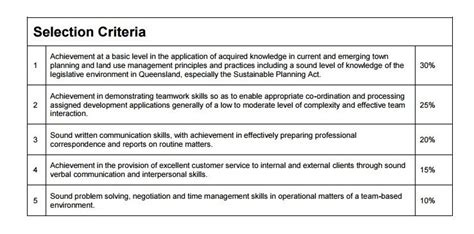Job Selection Factors: What To Look For In A Job

Choosing the right job is a crucial decision that can significantly impact your career satisfaction and overall happiness. It’s important to consider various factors before making a choice. In this article, we will explore the key factors you should look for in a job to make an informed decision.
1. Salary and Benefits
One of the primary factors to consider is the salary and benefits package offered by the employer. It’s essential to assess whether the compensation aligns with your skills, experience, and market standards. Additionally, consider the benefits such as health insurance, retirement plans, and paid time off, as they contribute to your overall financial well-being.
2. Work-Life Balance
Achieving a healthy work-life balance is crucial for your mental and physical well-being. Look for companies that prioritize work-life balance by offering flexible work hours, remote work options, and policies that promote employee well-being. This allows you to maintain a harmonious balance between your personal and professional life.
3. Career Growth Opportunities
Consider the potential for career growth and development offered by the job. Look for opportunities to learn new skills, take on challenging projects, and advance in your career. A company that invests in employee development and provides growth opportunities can significantly enhance your long-term career prospects.
4. Company Culture
The company culture plays a significant role in your job satisfaction. Research the company’s values, mission, and work environment to ensure they align with your own beliefs and preferences. A positive and inclusive company culture fosters collaboration, engagement, and overall job satisfaction.
5. Work Environment
The work environment can greatly impact your productivity and job satisfaction. Consider factors such as the office layout, company size, and team dynamics. Some individuals thrive in fast-paced, collaborative environments, while others prefer a more quiet and independent work setting. Choose a work environment that suits your work style and preferences.
6. Location
The location of your job can have a significant impact on your daily commute and overall quality of life. Consider factors such as proximity to your home, availability of public transportation, and cost of living in the area. Assess whether the location aligns with your lifestyle and personal preferences.
7. Company Reputation
Research the reputation of the company before accepting a job offer. Look for information on the company’s financial stability, industry standing, and employee satisfaction. This will give you insights into the company’s credibility and potential for long-term success.
8. Job Security
Job security is an important consideration, especially in uncertain economic times. Assess the stability of the industry and the company before making a decision. Look for signs of growth, financial stability, and a strong track record of retaining employees.
9. Work-Life Integration
Work-life integration focuses on creating a seamless integration between your personal and professional life. Look for companies that offer programs and policies that support work-life integration, such as on-site child care, flexible schedules, and wellness initiatives. This allows you to effectively manage both your personal and professional responsibilities.
10. Personal Fulfillment
Lastly, consider whether the job aligns with your personal values, interests, and passions. Taking a job that aligns with your personal fulfillment can lead to greater job satisfaction and a sense of purpose. Assess whether the job allows you to make a meaningful impact and contribute to something larger than yourself.
Conclusion
When selecting a job, it’s crucial to consider various factors that contribute to your overall job satisfaction and long-term career prospects. From salary and benefits to personal fulfillment, each factor plays a significant role in your decision-making process. Take the time to assess your priorities and choose a job that aligns with your values, goals, and aspirations.
Frequently Asked Questions
1. How important is salary when choosing a job?
While salary is an important factor, it should not be the sole determinant when choosing a job. Consider other factors such as career growth opportunities, work-life balance, and personal fulfillment.
2. How can I assess a company’s culture?
To assess a company’s culture, you can research their values, mission statement, and employee reviews. Additionally, consider reaching out to current or former employees for insights into the company’s work environment.
3. What is work-life integration?
Work-life integration refers to blending your personal and professional life in a way that allows for greater flexibility and balance. It involves finding ways to effectively manage both personal and professional responsibilities without strict boundaries.
4. How can I determine the potential for career growth in a company?
You can determine the potential for career growth in a company by researching their employee development programs, advancement opportunities, and the track record of employees who have progressed within the organization. Additionally, consider the company’s growth trajectory and industry trends.
5. Why is personal fulfillment important in a job?
Personal fulfillment in a job is important as it contributes to your overall job satisfaction and happiness. When you find a job that aligns with your personal values, interests, and passions, you are more likely to feel a sense of purpose and fulfillment in your work.
